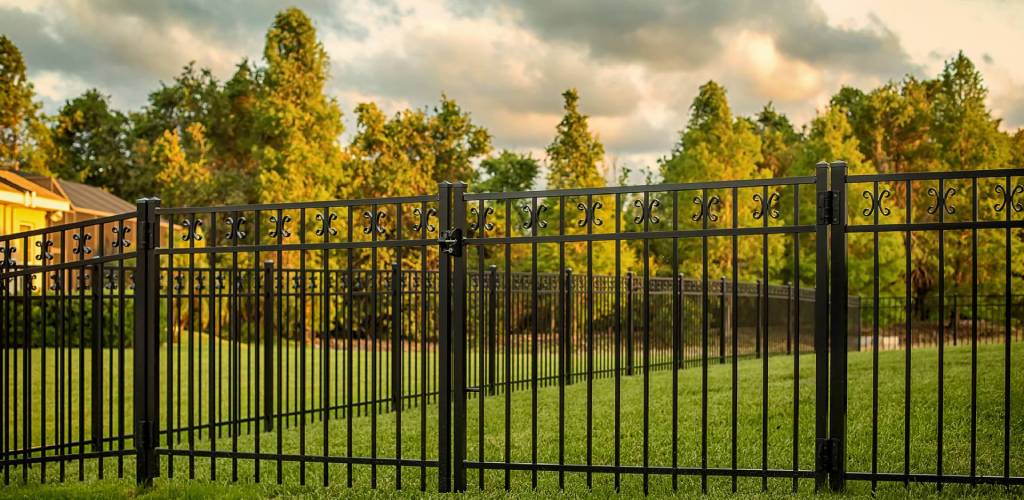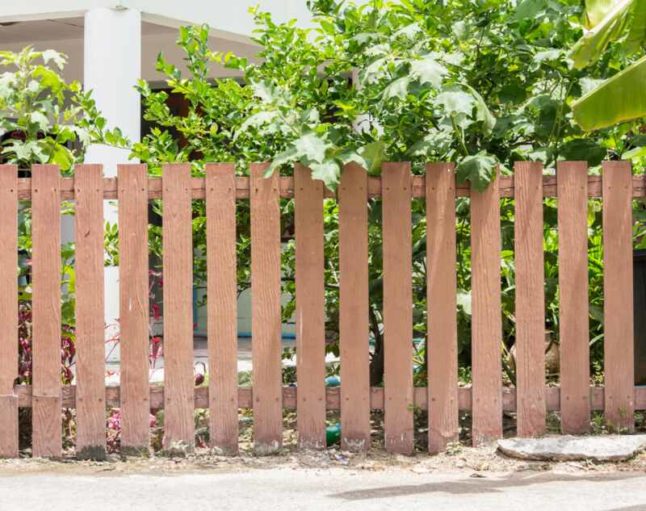All Categories
Featured

Selecting the ideal fencing material is necessary for accomplishing the balance of durability, appearances, and capability that fits your residential property. Timber, vinyl, and aluminum are prominent options, each with distinct attributes that accommodate specific demands. Here's a comprehensive consider the benefits and downsides of these three products.
Wood Fencing. Pros:. Timeless Charm: Timber supplies an all-natural, timeless look that matches various architectural styles. Personalized: It can be repainted or discolored in a range of design and colors. Budget-friendly: Wood fences are commonly less expensive ahead of time than vinyl or light weight aluminum. Eco-Friendly: As a sustainable resource, wood is lasting and eco-friendly when sourced properly. Disadvantages:. Maintenance-Intensive: Requires regular discoloration, painting, or securing to protect versus climate and bugs. Much Shorter Life-span: Depending on the type of timber and environment, it typically lasts 10-15 years. Vulnerability to Damage: Prone to decaying, bending, and termite damage without appropriate care. Timber is suitable for house owners that value aesthetic appeals and are prepared to invest effort and time in upkeep to prolong its life.
Vinyl Fencing. Pros:. Durable: Immune to insects, rot, and weather condition, plastic preserves its structure in rough conditions. Low Upkeep: Calls for little maintenance beyond periodic cleansing. Lengthy Lifespan: Plastic can last 20-30 years without substantial wear or damages. Functional Styles: Offered in different colors, structures, and designs, including options that imitate wood. Disadvantages:. Costly Setup: Plastic fences are more pricey to install contrasted to wood. Weak in Winter: Vinyl can fracture in extreme cold environments. Hard to Fixing: If harmed, entire sections might require substitute, which can be testing to match. Vinyl fence is a wonderful choice for those focusing on durability and minimal maintenance, also if it features a higher in advance cost.

Aluminum Fence. Pros:. Rust-Resistant: Light weight aluminum does not corrosion, making it ideal for moist or moist locations. Strong yet lightweight: Deals stamina without being extremely heavy, which simplifies installment. Reduced Upkeep: Needs little bit greater than cleansing and periodic repainting. Durability: Aluminum fencings can last for years without considerable deterioration. Stylish Layouts: Usually utilized for ornamental functions, light weight aluminum includes refinement to any property. Cons:. High First Price: Light weight aluminum fences are amongst the much more expensive options. Limited Privacy: Frequently created with open areas, they do not obstruct views or noise. At risk to Dents: While strong, light weight aluminum can be dented or curved with hefty impact. Aluminum is ideal suited for those who desire a resilient, trendy fence and don't need full privacy.
Making the Right Selection. Each product has its strengths and weaknesses:

Timber is excellent for eco-conscious purchasers and standard visual appeals who do not mind maintenance. Plastic works for house owners seeking a weather-resistant, low-maintenance service. Light weight aluminum is a sturdy, decorative choice for those that want sophistication and longevity. Consider your concerns-- whether it's cost, maintenance, personal privacy, or appearance-- and seek advice from a fence specialist to select the product that best meets your needs. A well-selected fence will enhance your residential or commercial property for several years ahead.
Latest Posts
Practical Carpeting Look After Lasting Beauty
Published Apr 21, 25
2 min read
Practical Sophistication for Every Home
Published Apr 20, 25
1 min read
Flooring Professionals Who Treat You Like Household
Published Apr 20, 25
1 min read